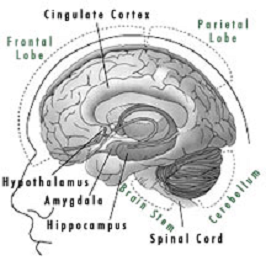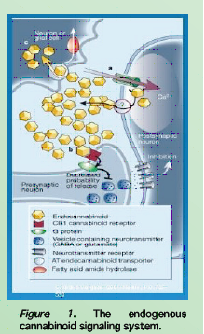

Scientists weed out memory impairments in dopey subjects
Written by Catherine Beehag
There is a high incidence of cannabis use within the Australian population. It is now known as the most commonly used illicit substance, with 39% of people over the age of 14 having tried it at some stage.
Due to its widespread use, the acute effects of cannabis have been researched well and impairments in a wide range of cognitive processes and psychomotor functioning have been found.
Positive symptoms: a mild euphoria, relaxation, intensification of ordinary sensory experiences, infectious laughter and increased talkativeness, and sociability in social settings.
Negative symptoms: can include anxiety, panic, paranoia and depression. There is also a risk of psychosis in vulnerable individuals, impaired concentration and memory performance, and a worsening of motor skills, reaction time and co-ordination. Negative experiences, which can occur in tandem with positive ones, tend to be temporally distanced from the point of exposure and so it is the much more immediate, and thus more easily associable, positive effects that encourage continued use.
But can this green plant impair our ability to do day-to-day tasks?
Scientists from the University of Wollongong claim that, yes, cannabis does impair performance on recall and this goes beyond the period of acute intoxication.
 Rob Battisti and colleagues presented 10 categorically unique lists of words to participants – either normal or long-term cannabis users – on a computer monitor and asked to recall them whilst their brain activity is recorded. They were asked to recall the list of words 45 minutes after being presented the words.
Rob Battisti and colleagues presented 10 categorically unique lists of words to participants – either normal or long-term cannabis users – on a computer monitor and asked to recall them whilst their brain activity is recorded. They were asked to recall the list of words 45 minutes after being presented the words.
As hypothesised, a poorer memory performance was observed in the cannabis uses on both tasks. What is interesting is that the results from the electroencephalogram (EEG), suggests that users actually process and/or attend to words they are attempting to store differently to non users. That is, they actually store the information differently.
Overall, extended cannabis use does appear to produce observable changes in memory performance that appear to correlate electrophysiologically. So even though weed gives you mild euphoria, makes you relax and laugh do you really want to not be able to remember the phone number of that girl last week?
How does marijuana affect our memory?
 Δ-9-tetrahydrocannabinol (THC) is the active ingredient in cannabis and has a rapid uptake in humans. As such its effects are felt quite rapidly upon introduction to the body.
Δ-9-tetrahydrocannabinol (THC) is the active ingredient in cannabis and has a rapid uptake in humans. As such its effects are felt quite rapidly upon introduction to the body.
When marijuana is smoked, THC, travels throughout the body, including the brain, to produce its many effects. THC attaches to sites called cannabinoid receptors on nerve cells in the brain, affecting the way those cells work. Cannabinoid receptors are abundant in parts of the brain that regulate movement, coordination, learning and memory, higher cognitive functions such as judgment, and pleasure.
The brain already secretes endogenous cannabinoids (see Figure 1). When marijuana is smoked, THC, travels throughout body and brain, and produces its positive and negative effects associated with cannabis use.
OnSET is an initiative of the Science Communication Program
URL: http://www.onset.unsw.edu.au/ Enquiries: onset@unsw.edu.au
Authorised by: Will Rifkin, Science Communication
Site updated: 7 Febuary, 2006 © UNSW 2006 | Disclaimer
OnSET is an online science magazine, written and produced by students.
![]()
OnSET Issue 6 launches for O-Week 2006!
![]()
Worldwide
Day in Science
University
students from around the world are taking a snapshot
of scientific endeavour.
Sunswift
III
The UNSW Solar Racing Team is embarking
on an exciting new project, to design and build the
most advanced solar car ever built in Australia.
![]()
Outreach
Centre for Sciences
UNSW Science students can visit your school
to present an exciting Science Show or planetarium
session.
![]()
South
Pole Diaries
Follow the daily adventures of UNSW astronomers
at the South Pole and Dome C through these diaries.
News in Science
UNSW is not responsible for the content of
these external sites